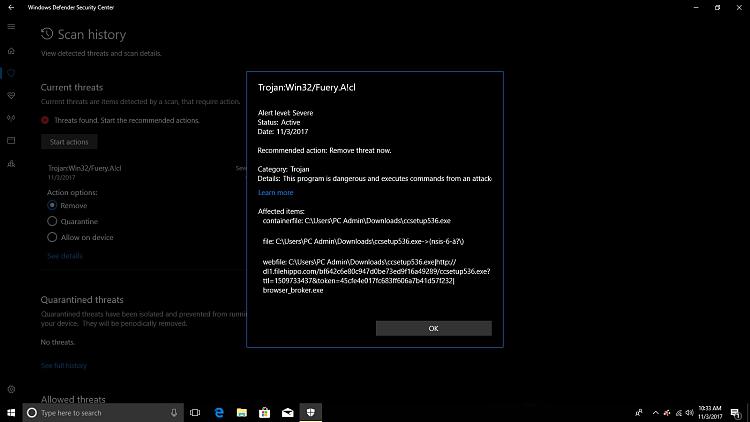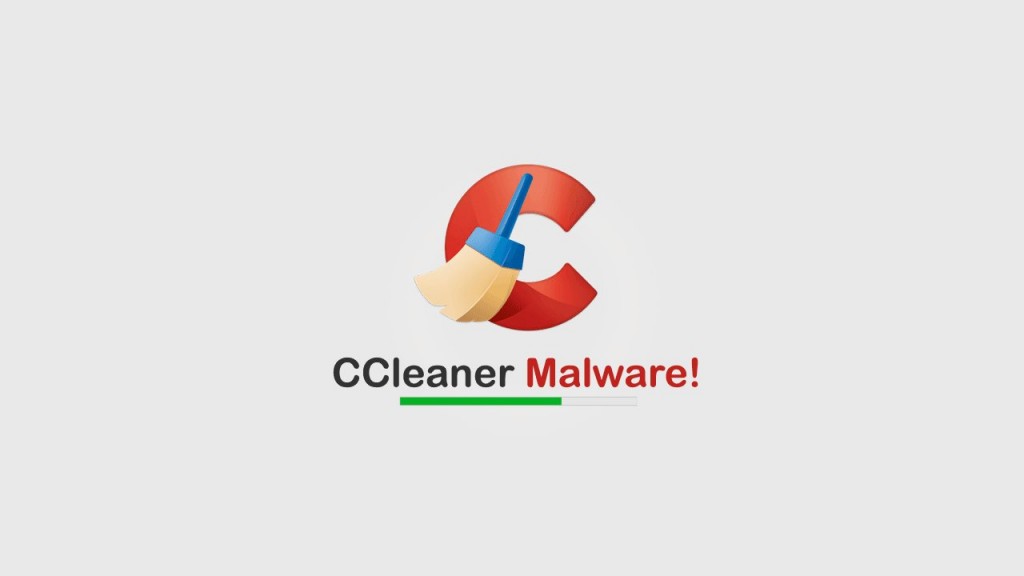

- CCLEANER MALWARE TROJAN INSTALL
- CCLEANER MALWARE TROJAN UPDATE
- CCLEANER MALWARE TROJAN MODS
- CCLEANER MALWARE TROJAN SOFTWARE
CCLEANER MALWARE TROJAN UPDATE
This is perhaps a much better tool to use than Speccy since Speccy too has offers from Avastīut HWInfo64 also supports this Bios Agent Update site which is even worse in my opinion.
CCLEANER MALWARE TROJAN INSTALL
On another note regarding one of their other products, Speccy which also attempts to install CCleaner and add an automated updater (normally might not be bad but typically most helpers and users use it as a one time use and thus adding an update checker simply uses more resources for little reason) Part of what Microsoft also doesn't like is the Registry Cleaning by CCleaner - I wrote an article about it 2013 over 7 years ago. If it were just a one-time thing once could overlook or ignore it at this point but it shows a pattern that the company is very much behind finding ways to monetize the program often via negative means. Unfortunately, since Avast bought them there have been at least a few practices that have been questionable or upsetting to users. Yes, but to be fair this is not the first time.
CCLEANER MALWARE TROJAN MODS
I can now download and install various CCleaner installer versions without a peep from defender.ĭisclosure - Yes I am a moderator on the CCleaner forum, not an employee but as mods we do get some inside information that others don't see. (One of the offers is for CCleaner Browser, a Chromium based browser - surely they don't see it as a possible rival to Edge Chromium?) So it appears that MS's real issue is with the installer offers and not the reg cleaner. The various (Slim, Pro, Enterprise, etc.) installers that did not contain these offers were not flagged, even though they install the same CCleaner with the same reg cleaner included. It is interesting to note though that the only CCleaner installers they were flagging were the ones that contained bundled offers. 15 “before any known harm was done.MS are supposed to have lifted the block now, but some users may still see it flagged as a PUA.Īgreed that the registry cleaner should be removed from CC, (been telling them that for years now), and ostensibly this is why Microsoft say they are/were flagging CCleaner. Reuters goes on to quote Avast as saying the C2 server was closed down on Sept. An estimated 2.27 million CCleaner users affectedĪccording to Reuters, Avast estimates that “2.27 million users had downloaded the August version of CCleaner.” It isn’t clear from the report if that’s the total number of downloads for CCleaner 5.33. The primary infection Command server has been taken offline, as has a secondary server.Īccording to Talos, the Virus Total regimen for checking antivirus products against a submitted sample turned up only one AV package that correctly identifies this infection, "-6336251-0."Īntivirus packages will likely increase their detections in the next few hours, but it’s still concerning. Talos published very convincing logs of attempts by infected machines to hook into the bot Command sites. If you install CCleaner 5.33, your machine hooks into a bot network. The details are complex, but the upshot is clear: Somebody managed to tack a malware package onto the legitimate distribution file for CCleaner. If you installed CCleaner 5.33, you're infected During the installation of CCleaner 5.33, the 32-bit CCleaner binary that was included also contained a malicious payload that featured a Domain Generation Algorithm (DGA) as well as hardcoded Command and Control (C2) functionality. …Įven though the downloaded installation executable was signed using a valid digital signature issued to Piriform, CCleaner was not the only application that came with the download. For a period of time, the legitimate signed version of CCleaner 5.33 being distributed by Avast also contained a multi-stage malware payload that rode on top of the installation of CCleaner.
CCLEANER MALWARE TROJAN SOFTWARE
Talos recently observed a case where the download servers used by software vendor to distribute a legitimate software package were leveraged to deliver malware to unsuspecting victims.

Edmund Brumaghin, Ross Gibb, Warren Mercer, Matthew Molyett, and Craig Williams at Talos report:


 0 kommentar(er)
0 kommentar(er)
